Valentina Triet
Bertha Pappenheim / Anna O., the ur-patient with whom psychoanalysis began, was a collector of filigree lace which she amassed throughout her years and travels into a collection of about 1850 stitched, tatted, trimmed embroidered and bobbin braided textile items. All for what? Lace is never for lace’s sake, I read somewhere. All those threads from my slit shuttle yarns unravel or a yearning to follow a certain pattern interlaced or tender & slender tissue. [1] In Italy, women make lace – punti in aria – stitches in air, materialising spaces between things. Jorie Graham, who studied film before she became a poet, said in an interview that “learning to shoot and, especially, to edit, film taught to me one could see nearly invisible patterns between things.” [2]
In this scene, phantoms of lace, branches, night city lights, dot arrangements, geometric drawings and a simulacra dress form a constellation–a study of patterns. If this study arises from a desire for primary patterns, the gaze that recognises these could be described as psychedelic; one that plunges into fine structures and atomic models, searching for something irreducible. The patterns have been produced by an action of light. Each one a still, but the tempo of their sequence creates a sense of time and movement, or language, if one were to follow the Greek origin of the word photography as ‘light writing’. Writing the light in other constellations: Pattern is a teacher / patterns, each I tear / each spatter, retina / inset, apart, reteach / therapies can treat / patterns, each I tear.
“Pattern as a Teacher”, a title which suggests some sense of strictness and order: that there are lines and rules or instructors to be followed. A recent review about the work of Moyra Davey said she shows how we construct ourselves through adulation and imitation, “through feeling in step with our heroes.” [3] Pattern as the sharing of a common code. In one of her films, Davey flicks through Peter Hujar’s first book of photographs. A hand opens the book, flips through from back to front–pages turn, breathing, not much else. Image reading in real time. Valentina tells me about this film as she flicks through her notebook, back to front, turning pages, photographs of other artists and works appear and disappear, breathing, not much else.
Much like the photogram’s absent object, our relationship to patterns and repetitions or teachers and idols might well be entirely imaginary (psychedelic, phantomatic?). An abstract materialisation of light, of language perhaps. That one of Anna’s symptoms was partial aphasia–in which, having lost her mother tongue, German, she could only understand and speak English–suggests that most threads that follow certain patterns, or teachings eventually unlace. Spulen sich die garne oder gerne nach gewissen mustern, then unlace.
Sophia Roxane Rohwetter
[1] Taken from the English translation of Uljana Wolf’s poem “Spitzen”.
[2] Jorie Graham, interviewed by Deidre Wengen: “Imagining the Unimaginable. Jorie Graham in Conversation”.
[3] Lou Stoppard: “Peter Hujar, Moyra Davey, and the Performance of Honesty”.
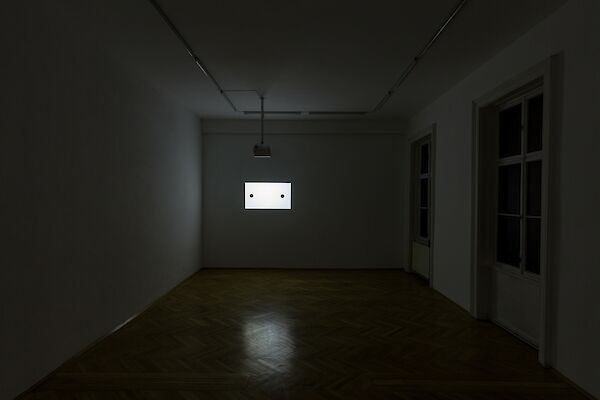
Valentina Triet, Pattern as a Teacher, 2021, Installation view, FELIX GAUDLITZ, Vienna
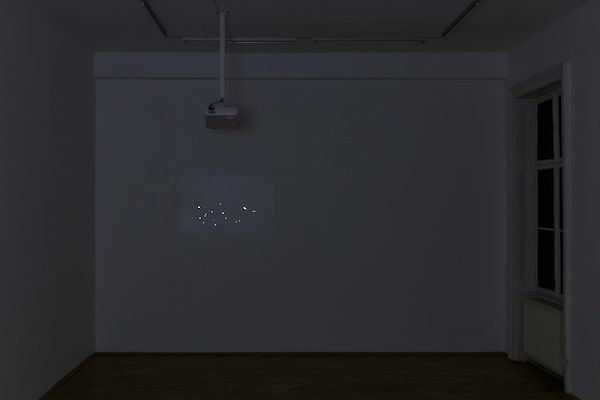
Valentina Triet, 01/01 : (Pattern as a Teacher), 2021, HD Video, 02:23 min. loop, Ed. 2 + 1 AP, FELIX GAUDLITZ, Vienna
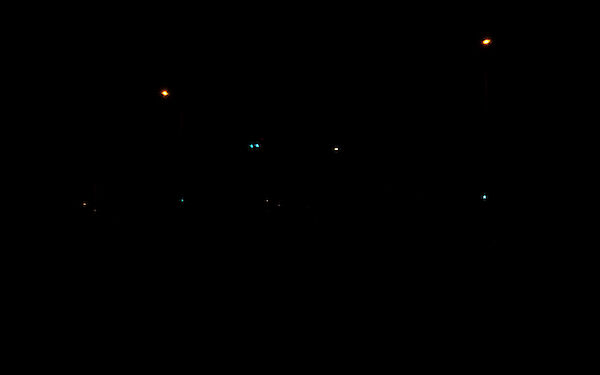
Valentina Triet, 01/01 : (Pattern as a Teacher), 2021, Filmstill, HD Video, 02:23 min. loop, Ed. 2 + 1 AP
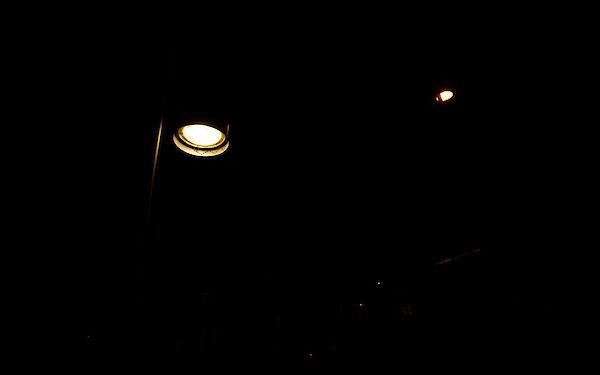
Valentina Triet, 01/01 : (Pattern as a Teacher), 2021, Filmstill, HD Video, 02:23 min. loop, Ed. 2 + 1 AP
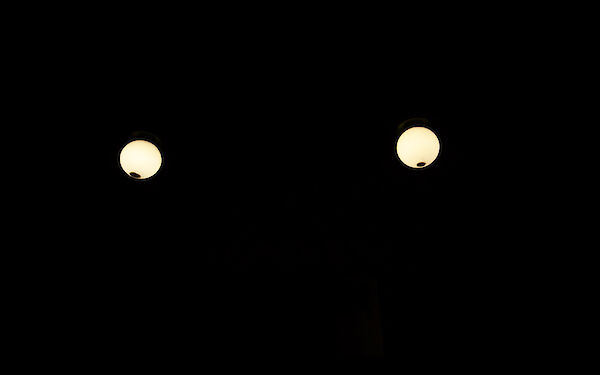
Valentina Triet, 01/01 : (Pattern as a Teacher), 2021, Filmstill, HD Video, 02:23 min. loop, Ed. 2 + 1 AP
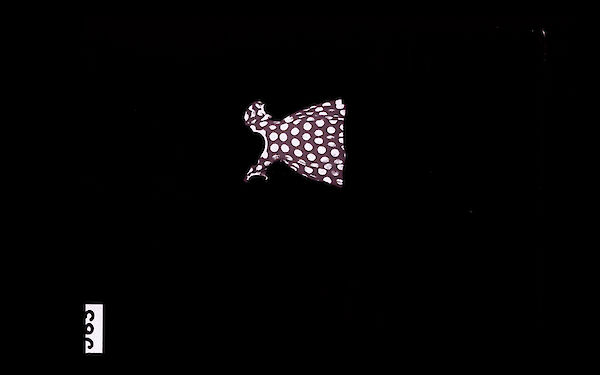
Valentina Triet, 01/01 : (Pattern as a Teacher), 2021, Filmstill, HD Video, 02:23 min. loop, Ed. 2 + 1 AP
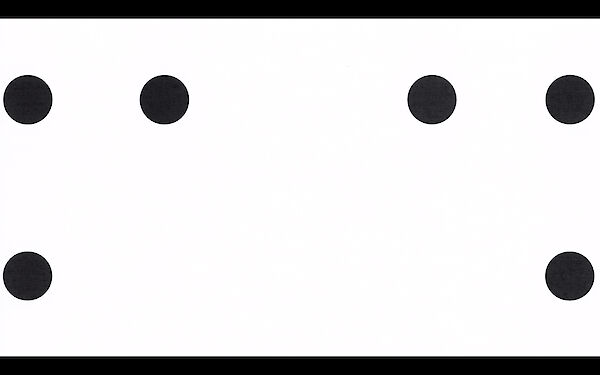
Valentina Triet, 01/01 : (Pattern as a Teacher), 2021, Filmstill, HD Video, 02:23 min. loop, Ed. 2 + 1 AP
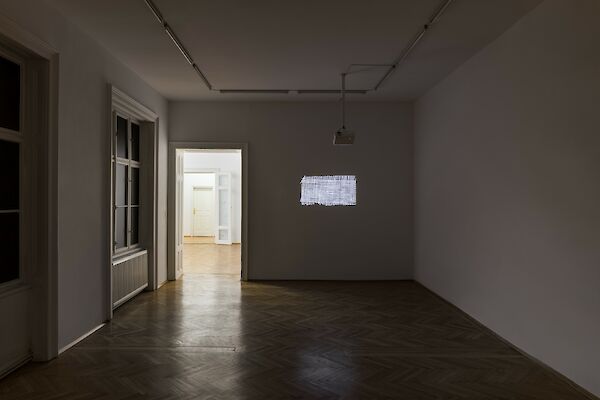
Valentina Triet, Pattern as a Teacher, 2021, Installation view, FELIX GAUDLITZ, Vienna
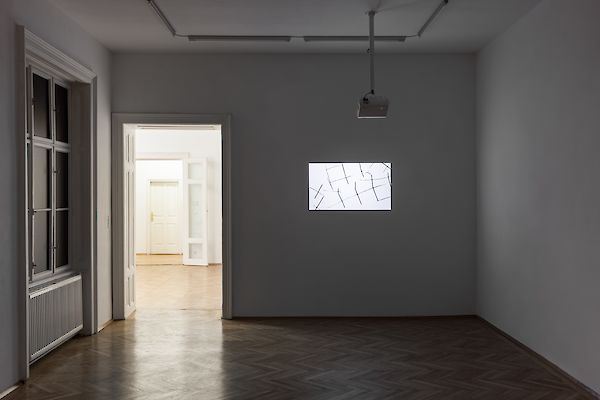
Valentina Triet, 02/01 : (Pattern as a Teacher), 2021, HD Video, 00:26 min. loop, Ed. 2 + 1 AP, FELIX GAUDLITZ, Vienna
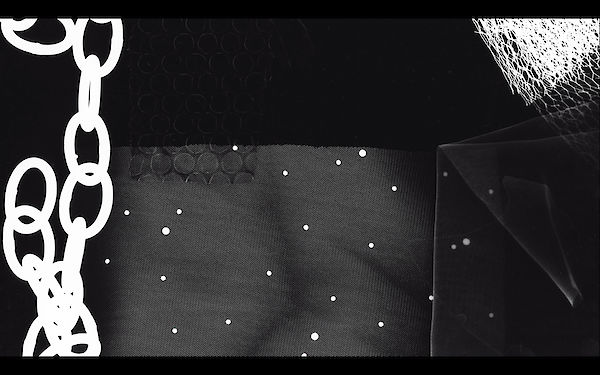
Valentina Triet, 02/01 : (Pattern as a Teacher), 2021, Filmstill, HD Video, 00:26 min. loop, Ed. 2 + 1 AP
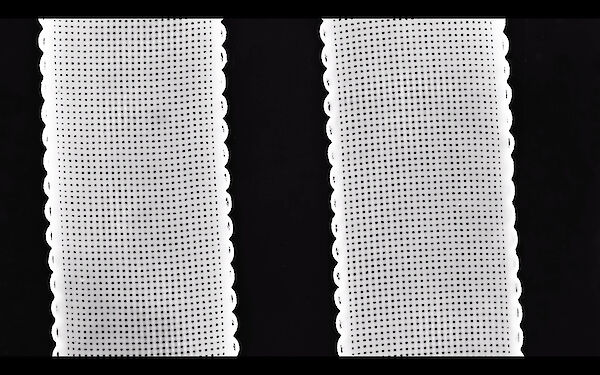
Valentina Triet, 02/01 : (Pattern as a Teacher), 2021, Filmstill, HD Video, 00:26 min. loop, Ed. 2 + 1 AP
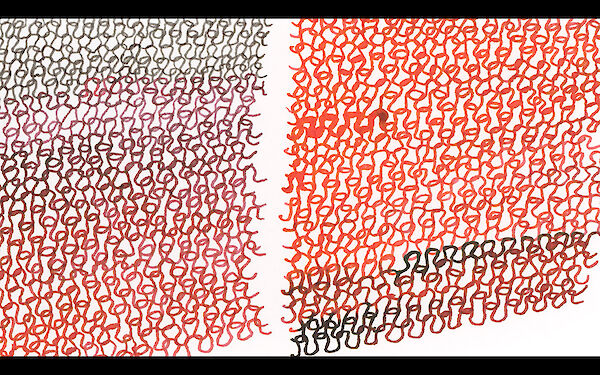
Valentina Triet, 02/01 : (Pattern as a Teacher), 2021, Filmstill, HD Video, 00:26 min. loop, Ed. 2 + 1 AP
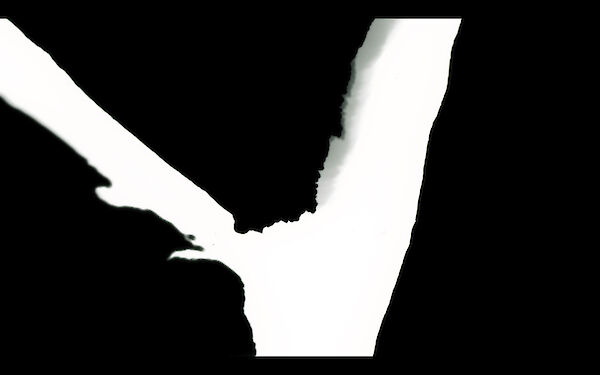
Valentina Triet, 02/01 : (Pattern as a Teacher), 2021, Filmstill, HD Video, 00:26 min. loop, Ed. 2 + 1 AP
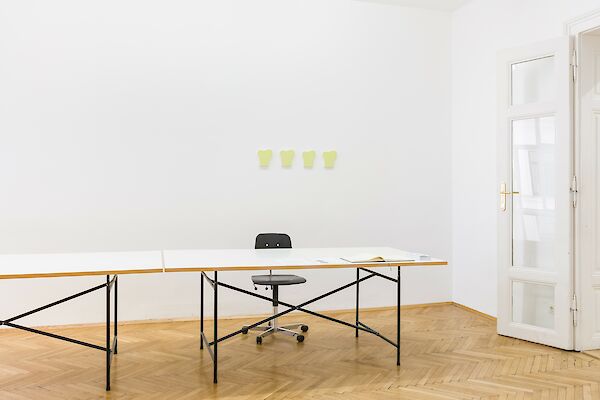
Valentina Triet, Pattern as a Teacher, 2021, Installation view, FELIX GAUDLITZ, Vienna
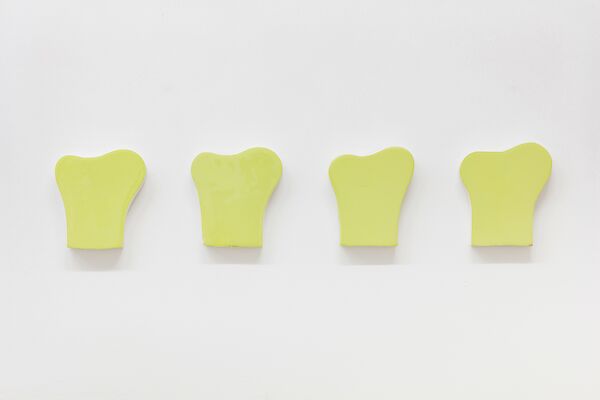
Valentina Triet, Pattern as a Teacher, 2021, Installation view, FELIX GAUDLITZ, Vienna
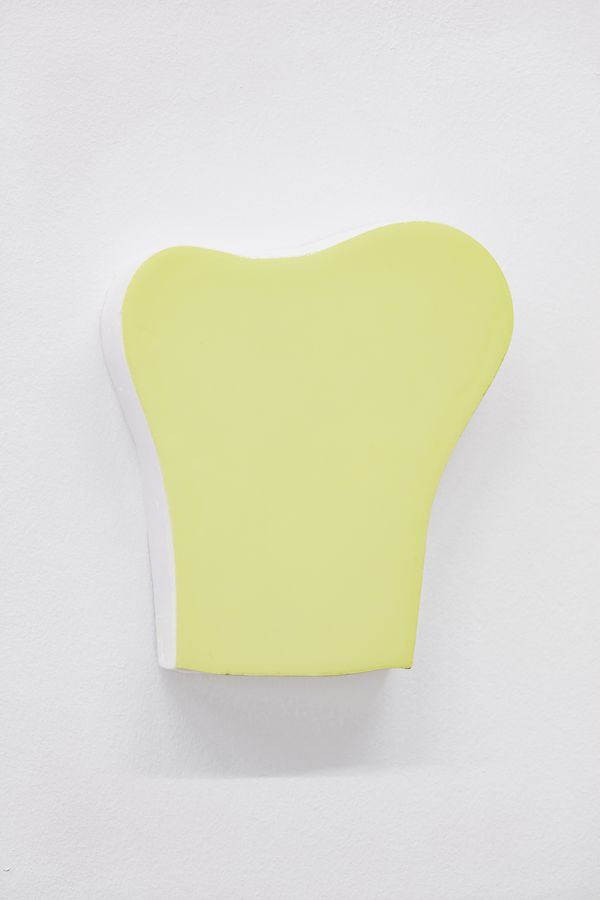
Valentina Triet, Glee, 2021, Pigments and epoxy on plaster, ca. 16,5 × 16,5 × 2 cm (ca. 6.496 × 6.496 × 0.787 in)
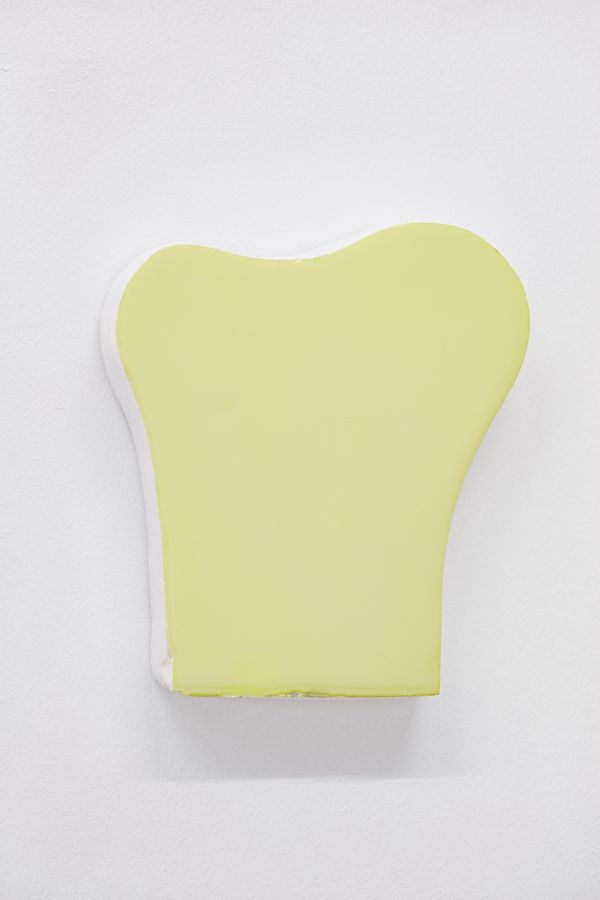
Valentina Triet, Glee, 2021, Pigments and epoxy on plaster, ca. 16,5 × 16,5 × 2 cm (ca. 6.496 × 6.496 × 0.787 in)
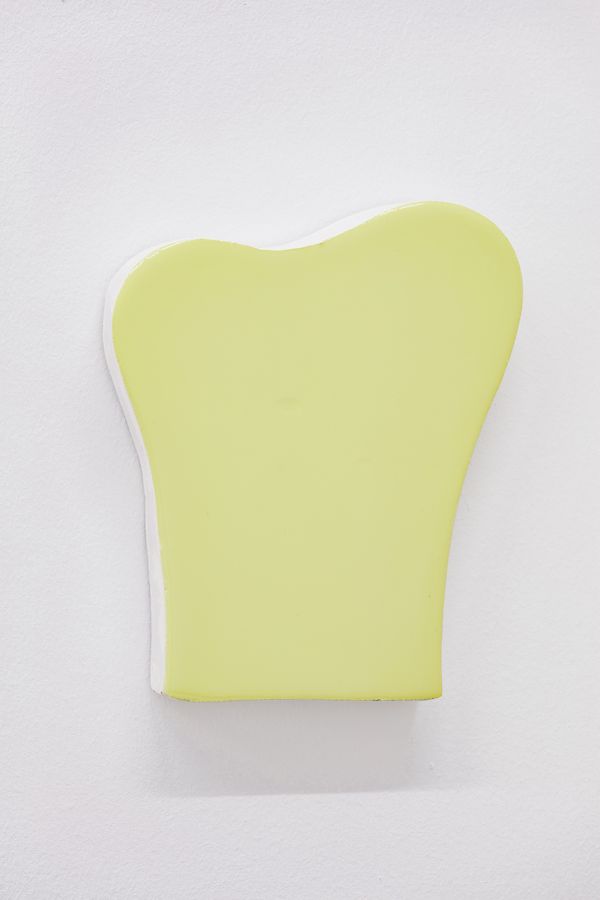
Valentina Triet, Glee, 2021, Pigments and epoxy on plaster, ca. 16,5 × 16,5 × 2 cm (ca. 6.496 × 6.496 × 0.787 in)
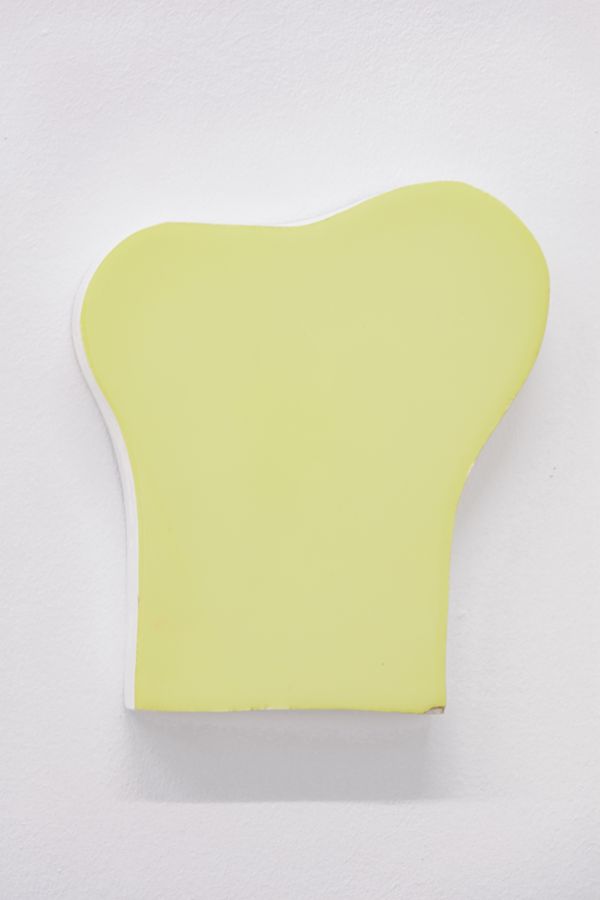
Valentina Triet, Glee, 2021, Pigments and epoxy on plaster, ca. 16,5 × 16,5 × 2 cm (ca. 6.496 × 6.496 × 0.787 in)
Photography: kunst-dokumentation.com